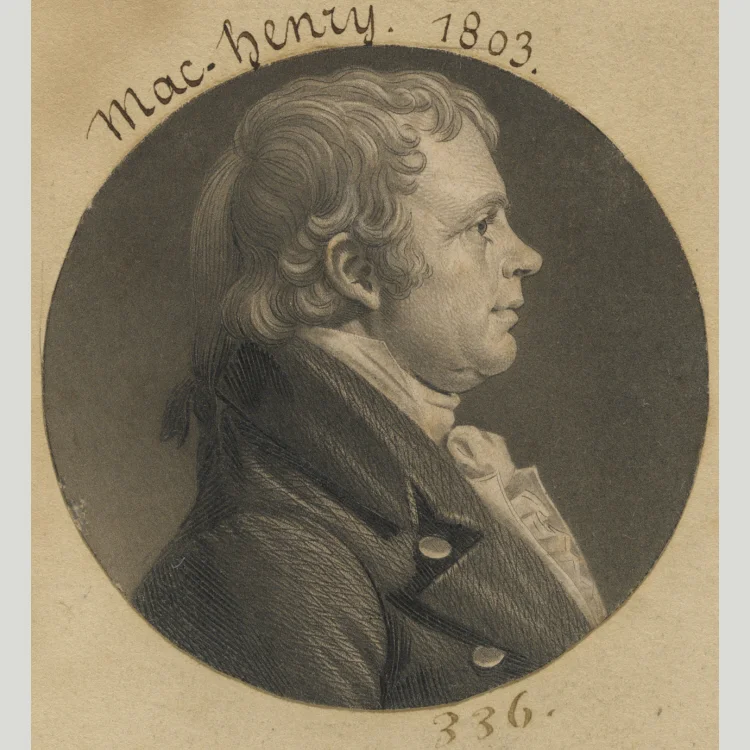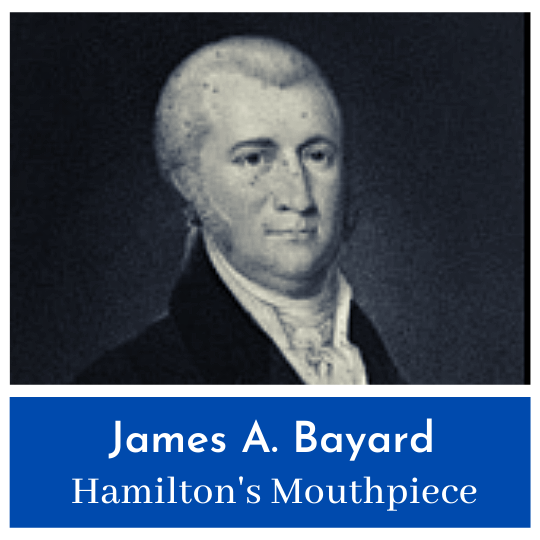James A. Bayard Does Hamilton's Dirty Work
James A. Bayard was an important Federalist in the House of Representatives during the Adams and Jefferson Presidencies.
Bayard was involved in several important events, but most notably he helped sway the Election of 1800.
James A. Bayard
In yesterday’s article about Caesar A. Rodney we mentioned his longtime political rival (though lifelong friend) James Bayard. Today, I decided it would be fair to look further into Bayard’s interesting life.
James A. Bayard was orphaned as a child and raised by his uncle, John Bubenheim Bayard, in Philadelphia. After attending Princeton University, he studied law under many notable Founders, including Joseph Reed.
Degree in hand, Bayard returned to his family’s tradition home State: Delaware.
At just 29 years old, James was elected to the United States House of Representatives.
The Election of 1800
James Bayard quickly became a leader in the House, participating in several precedent setting events in the Constitution’s first two decades.
Most notably, Bayard was a leading Federalist during the tumultuous election of 1800.
When Thomas Jefferson and Aaron Burr tied in electoral votes, the decision as to who would be President was left to the House of Representatives. The Federalists considered throwing the election to Burr, as he had formerly associated with that Party.
It was in this situation that Alexander Hamilton famously stepped in and put his support behind Jefferson.
Lesser of Two Evils
Unlike in the play Hamilton, Alexander did not go shouting his sympathies from the rooftops. Instead, he sent them in a letter.
That letter went to James A. Bayard.
In this correspondence, Hamilton denounced any idea that Burr would be better for the Federalist Party. He told Bayard, ‘Let us not be responsible for the evils which in all probability will follow (Burr’s election).’
James returned to the House where he led the Federalists to elevate Thomas Jefferson to the Presidency of the United States.
Senator and Peace Commissioner
Three years later, Bayard was appointed to fill a vacancy in the Senate.
James would be reelected soon thereafter and spent just under a decade in the highest legislative body in the nation. Although he was against declaring the War of 1812, once the hostilities began Bayard supported President James Madison.
Due to his support for the President, Bayard was not looked down on like most Federalists. In fact, he was one of five Peace Commissioners selected to go to the Netherlands in an attempt to end the fighting.
In late 1814, James A. Bayard signed the Treaty of Ghent. This Treaty ended the War of 1812 and began over two hundred years of peace between the United States and Great Britain.
Madison appointed Bayard as Minister to Russia, however, James turned the opportunity down. Instead, he returned to America. Unfortunately, he fell ill on the journey home and passed away just five days after his return home.
I hope you enjoyed this article. If so, may I recommend my other pieces on Founders involved with the Election of 1800: Charles Cotesworth Pinckney and Aaron Kitchell.
If you are interested in learning more about Bayard, I recommend trying to get a hold of ‘The Federalism of James A. Bayard’ which is fairly rare but is not old enough for the copyright to have expired. Pick it up through the Amazon affiliate link below.
If you would like to keep up with my article, please subscribe to my email list for a daily publication. Thank you!





